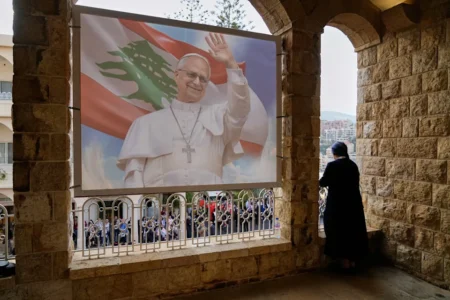India has raised strong concerns over the recent approval of a new IMF loan to Pakistan by the International Monetary Fund (IMF). Even as tensions between the two countries seem to ease slightly, India sees the IMF’s support to Pakistan as risky and troubling.
According to Indian officials, the $1.4 billion loan could be misused. They argue that Pakistan has a weak record when it comes to reform. They also worry that the money might be used to fund cross-border terrorism, especially those supported by the state. India has said that such a loan brings harm to the image of the IMF and its donors.
The IMF, however, said that the loan to Pakistan has made progress with the reforms it agreed to earlier. It also believes the country is on a path to recover from economic troubles. Along with the loan, the IMF also plans to support Pakistan in handling natural disasters and environmental risks.
The recent IMF loan to Pakistan is part of a larger program. If Pakistan continues to meet targets, it may receive more funds in the future. The IMF hinted that another $1.4 billion could be released soon.
India disagrees strongly. Officials pointed out two main problems. First, Pakistan has a poor track record in carrying out reforms. Second, they fear IMF funds might end up supporting terrorism. India highlighted that such misuse has been seen before, and ignoring it would be dangerous.
Pakistan, on the other hand, has always denied any ties to terrorism. Government leaders say they are taking steps to improve their economy and security.
India stated that the IMF is trapped in a system that limits its power. As a result, it cannot always make the best decisions. Indian leaders believe this is one of those moments where the IMF should have acted more carefully.
Some financial experts in Pakistan agree with India’s concerns. They admit that the country has failed many times to follow through on reform plans.
Former Pakistani ambassador to the U.S., Hussain Haqqani, made a striking comparison. He said going to the IMF is like being admitted to the ICU of a hospital. If a patient goes to the ICU 24 or 25 times, it clearly means there is a deeper health issue. Pakistan has taken loans from the IMF 24 times since 1958. According to Haqqani, that shows the country has serious structural problems that it keeps failing to fix.
India also believes that the IMF’s decision ignores important global values. They argue that supporting a country without making sure real changes happen goes against what the world stands for.
The IMF did not respond to India’s specific claims. But some analysts admit that the risk is real. Without major changes, Pakistan may keep facing the same problems, even after receiving new loans.
India has called on the IMF and its donors to act with more caution. They said decisions like this should not be made lightly. The global community must ensure that any financial help is used for peace, not violence.
In the end, while the loan may offer short-term help to Pakistan, the long-term issues remain. And India’s resistance to the loan shows that peace in the region is still fragile.
India may have agreed to peace talks, but when it comes to funding Pakistan, it has made its position very clear — it will not support any move that might fuel instability again.







